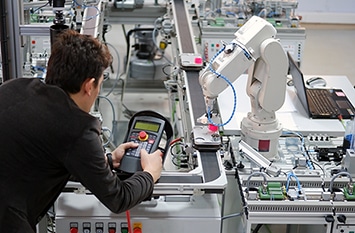
In a world witnessing rapid technological advancements and an ever-growing population, automation engineers play a pivotal role in simplifying daily tasks for employees, consumers, and businesses. Understanding the nuances of this engineering discipline can aid individuals in making informed decisions about pursuing a career in automation.
6 Common Questions Answered About Automation Jobs
- Why is Automation Engineering a “Hot Job?” Automation engineering is considered a “hot job” due to its pivotal role in streamlining processes, enhancing efficiency, and reducing costs across various industries. The increasing demand for automation solutions in fields like manufacturing, healthcare, and finance has led to a surge in opportunities for skilled automation engineers.
- What is an automation engineer in IT? An automation engineer in IT specializes in designing, developing, and implementing automated solutions to streamline IT processes. They leverage tools and technologies to automate tasks such as software testing, deployment, and monitoring, thereby improving the efficiency and reliability of IT operations.
- Is coding required for automation engineering? Yes, proficiency in coding is often required for automation engineering roles. Automation engineers commonly use programming languages such as Python and Java or scripting languages like PowerShell to develop automation scripts and frameworks for various tasks.
- Do you need a degree to become an automation engineer? While a degree in computer science, engineering, or a related field can provide a strong foundation for a career in automation engineering, it’s not always mandatory. Many automation engineers enter the field through hands-on experience, certifications, and specialized training programs.
- What kind of automation engineering jobs are there? Automation engineering jobs encompass many roles, including automation tester, automation engineer, automation technician, and more. These roles involve designing, implementing, and maintaining automated systems and processes across industries such as manufacturing, software development, and infrastructure management.
- What is the purpose of automation engineering? The primary purpose of automation engineering is to improve efficiency, reliability, and scalability by automating repetitive tasks and processes. Automation engineers design and implement solutions that reduce manual intervention, minimize errors, and enhance productivity, ultimately driving business growth and innovation.
Get Your Dream Automation Job with Winters Staffing

Are you looking to kickstart your career in automation engineering? Winters Technical Staffing specializes in connecting talented professionals with top employers in Canada’s thriving engineering sector. Whether you’re seeking automation testing jobs, automation engineer positions, or automation technician roles, Winters Staffing offers personalized recruitment services to help you land your dream job.
Ready to take the next step? Contact us today, and let us help you embark on a rewarding career in automation engineering.


